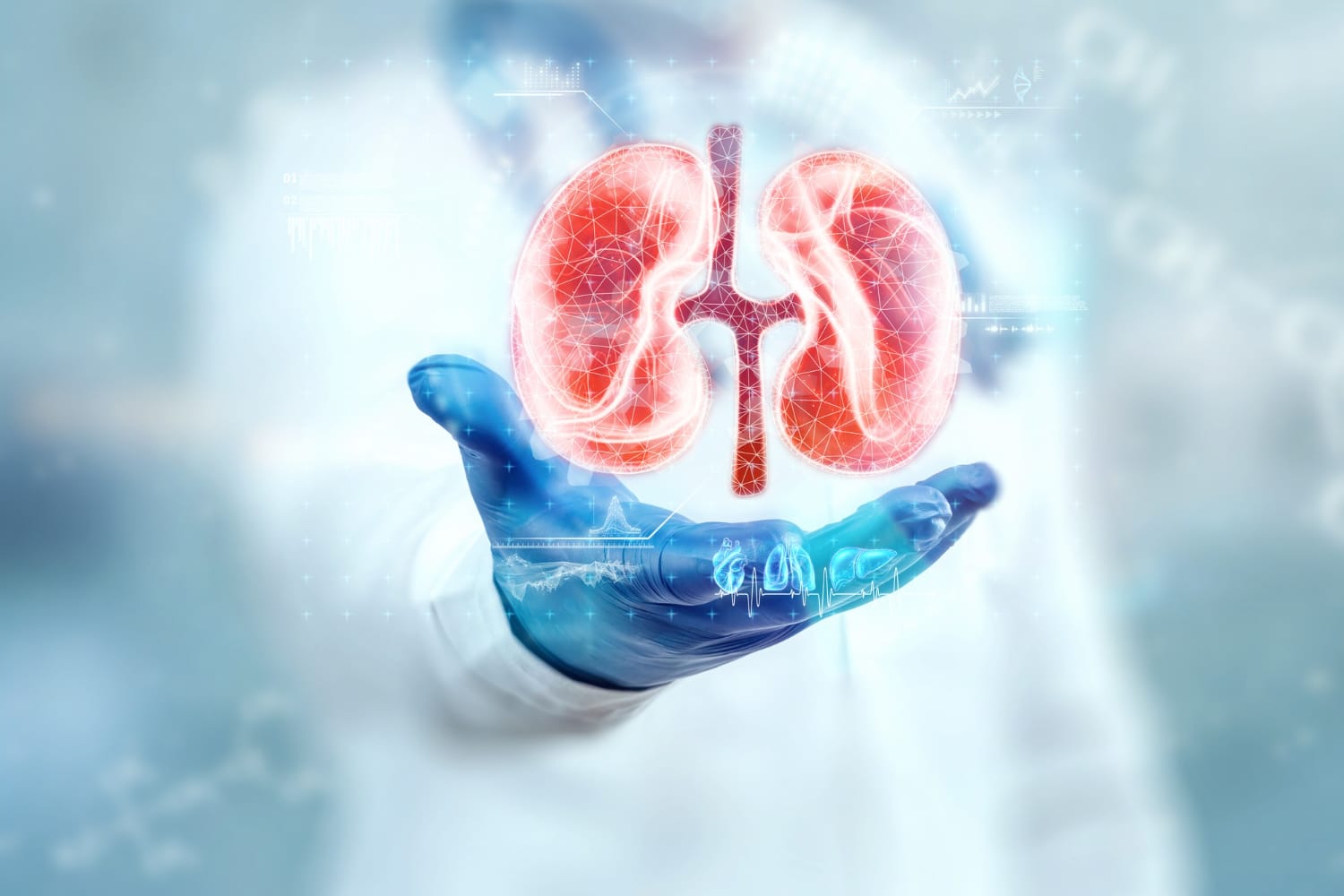One of the primary functions of your kidneys is to filter out waste products, excess water, and other contaminants. The excess water that they filter is held in your bladder before being eliminated by your body. But that's not all! If you’ve got healthy kidneys, they also regulate the pH and salt levels in your body.
They also create hormones that regulate red blood cell formation and blood pressure. They also activate a kind of vitamin D that promotes bone and muscular development. Furthermore, your kidneys control how your body absorbs calcium.
So you can see how important it is to maintain your kidneys' health. When they are in good shape, they can correctly filter waste and produce the hormones your body requires to function optimally. So, let’s explore some excellent ways to keep those kidneys in tip-top shape.

7 Tips to Keep Your Kidneys Healthy
Check out these simple yet effective strategies for maintaining healthy kidneys. Incorporating them into your lifestyle can contribute to your overall well-being.
1. Exercise Regularly
Exercising regularly has various benefits beyond merely reducing your waistline. It helps prevent renal disease by decreasing blood pressure and increasing heart function, both of which are essential for avoiding kidney damage.
You do not have to run marathons or spend hours in the gym to get moving. Walking, jogging, cycling, and even dancing may be excellent ways to improve your health. Choose an exercise that you like and keeps you interested so that you stick with it.
2. Adapt a Healthy Lifestyle Holistically
Maintaining a healthy weight and eating a well-balanced diet are critical for good health. If you are overweight or obese, you are at risk of developing diabetes, heart disease, and chronic kidney disease. To lower your risk, consume a well-balanced diet that is low in salt and processed meats.
Choose fresh, natural items that are low in sodium, such as blueberries, cauliflower, whole grains, seafood, and other healthy options. It's a delicious method to nourish your kidneys!
3. Monitor Your Blood Sugar
If you have diabetes, you must closely monitor your blood sugar levels. When your body is unable to utilize the sugar in your blood, your kidneys work extra hard, which can cause catastrophic harm. The good news is that if you can control your blood sugar, you can reduce your chance of severe damage.
Also, the role of medical records is critical in directing successful actions for blood sugar management and overall renal health. If any damage is detected early on, your doctor can take action to keep it from worsening. So, track your blood sugar levels and keep the record; it's worthwhile!
4. Stay Hydrated
Staying hydrated is critical, and while the "eight glasses a day" norm is a decent starting point, it is not a one-size-fits-all approach. Regular water intake benefits your kidneys by flushing away salt and pollutants. Furthermore, staying hydrated helps reduce the incidence of chronic renal disease.
The amount of water required varies depending on your exercise routine, surrounding climate, health condition, gender, and if you are pregnant or nursing. Drinking enough water can prevent you from having kidney stones again if you had them previously.
5. Keep a Check on Your Blood Pressure
High blood pressure can cause kidney damage, especially if you have diabetes, heart disease, or high cholesterol along with it. A good blood pressure level is often around 120/80. A result between that and 139/89 is called prehypertension. Making adjustments to your lifestyle and nutrition can significantly assist at this point.
However, if your blood pressure measurements are constantly above 140/90, you most certainly have high blood pressure. It's critical to consult with your doctor about maintaining a regular blood pressure check, making lifestyle changes, and maybe even taking medication.
6. Avoid OTC Medicines
It's critical to keep track of how many over-the-counter (OTC) pain medicines you use. Regular intake of NSAIDs such as ibuprofen or naproxen for chronic pain, headaches, or arthritis may result in chronic kidney disease over time. If you do not already have renal problems, using these drugs on occasion is likely to be safe.
However, using them on a daily basis may put your kidneys in danger. If you experience continuous discomfort, talk to your doctor about therapies that won't compromise your kidneys.
7. Undergo Regular Kidney Check-Ups
Monitoring your kidney health is critical, especially if you fall into one of the high-risk categories. This includes being born prematurely, being an older citizen, and being obese. Also, if you have high blood pressure, diabetes, renal disease, cardiovascular illness, or a family history of any of these conditions, you must get your kidneys checked regularly.
Regular kidney function tests are an excellent method to identify any possible problems early on and ensure you have a healthy kidney. It's always best to be proactive about your health!
To conclude, your kidneys are essential for maintaining your health. They play an important role in waste elimination and hormone synthesis. Thus, they must be cared for. One of the most effective methods to preserve a healthy kidney is to live an active and health-conscious lifestyle. This involves remaining physically active and eating a healthy diet.
If you have a health condition that puts you at risk for chronic kidney disease or damage, you should work closely with your doctor to monitor your kidney function. Always remember that minor lifestyle adjustments may go a long way towards improving kidney health!
Author Bio:
Jigar Patel is the Founder of Health-e, a HealthTech app that simplifies health records management along with providing personalized and preventative healthcare solutions. Although he has 20+ years of operations and management experience in the EPC domain, Jigar’s true passion lies in making healthcare simpler, faster, and more accessible for doctors and patients alike. He strongly believes that people need to be empowered to participate in their own healthcare and is constantly thinking of ways to build this into his app. He loves to keep things simple be it in life, product design, his work or the content he develops. Being married for 10 years and having 2 kids have taught him that perspective matters, so you can always count on him to share new perspectives on various topics.
